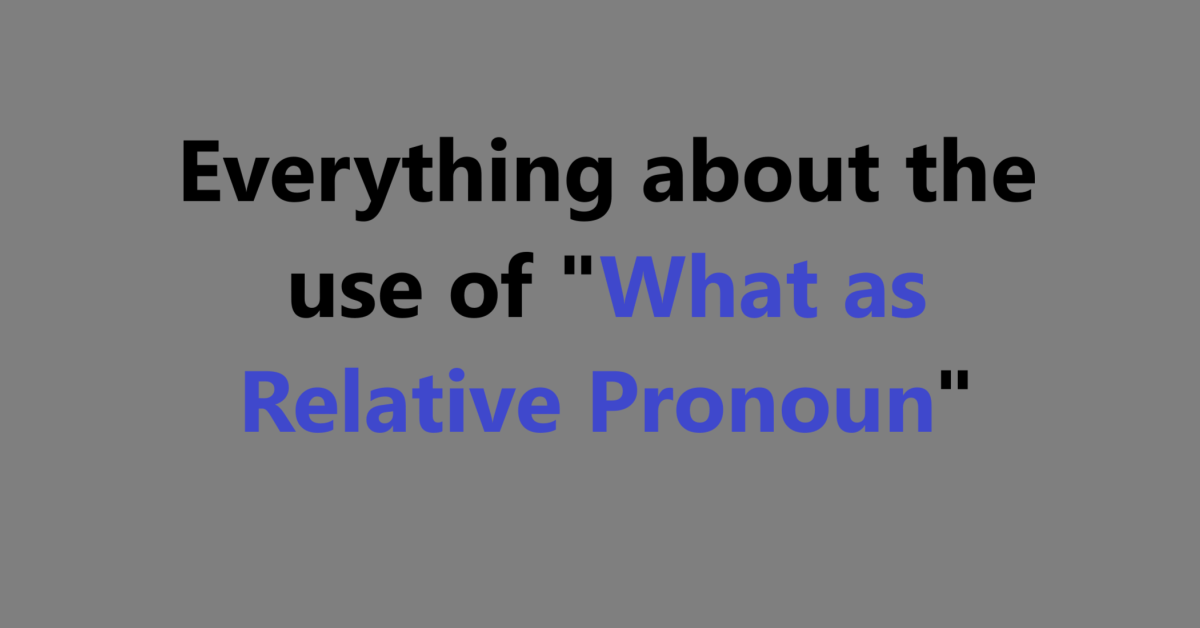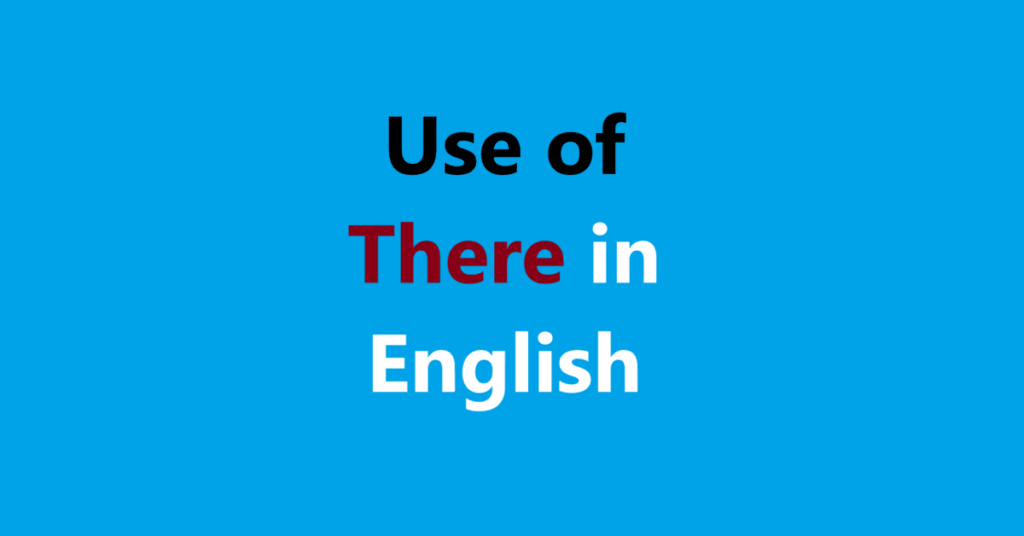Using “what” as a relative pronoun is an essential aspect of English grammar, allowing for more complex sentence structures by connecting clauses. Here’s a comprehensive overview of its usage:
Definition
A relative pronoun introduces a relative clause and refers to a noun mentioned earlier in the sentence (known as the antecedent). In the case of “what,” it typically refers to a thing or concept that has been previously mentioned or a general idea.
How “What” Functions as a Relative Pronoun
- Referring to Things or Ideas
- “What” acts as a pronoun representing things or ideas, allowing the speaker to provide additional information about them.
- Example: I don’t understand what he meant by that.
- Here, “what” refers to the idea or statement made by “he.”
- Complete Meaning
- “What” as a relative pronoun gives a more complete meaning by introducing a clause that serves to describe or clarify something.
- Example: This is what I believe to be true.
- In this case, “what” refers to the belief, and the clause explains the speaker’s assertion.
- Replacing “the thing that”
- “What” can often replace the phrase “the thing that,” making sentences less cumbersome.
- Example: That’s what I like about this book.
- The clause “I like about this book” provides specific information about “the thing.”
When to Use “What” as a Relative Pronoun
- In Defining Information
- “What” is useful when the information being introduced is essential to understanding the main clause.
- Example: Tell me what you find interesting about the project.
- It captures the essence of what the speaker wants to know.
- In Non-defining Clauses
- “What” is also applicable in non-defining clauses where the information is additional rather than essential.
- Example: This book, what I read last summer, was fascinating.
- The clause provides extra information about the book.
Variations and Structures
- What Clause: This structure includes “what” and can act as a noun in a sentence.
- Example: I didn’t know what I should do.
- What + Subject + Verb: This format can clarify or specify the statement being made.
- Example: What you said was very helpful.
Common Errors
- Omitting Antecedents: Since “what” already represents a set concept, it may not require an explicit antecedent.
- Ambiguity: Ensure clarity when using “what” to avoid confusion about what is being referred to.
- Example of Ambiguity: What you said he liked is unclear.
Tone and Context
- The context in which “what” is used can affect its meaning. The tone of the question or statement influences how it is perceived by the audience.
- For instance, “What you said surprised me” can indicate admiration or shock based on tone.
Questions and Answers on “What” as a Relative Pronoun
Here are 40 questions and answers that illustrate the use of “what” as a relative pronoun:
- Q: What book did you read that you recommend?
A: I recommend The Alchemist, which is a beautiful story about following your dreams. - Q: What movie did you see that surprised you?
A: I saw Inception, which had an amazing plot twist at the end. - Q: What project are you working on that excites you?
A: I’m working on a community garden project, which aims to provide fresh produce to local families. - Q: What place did you visit that was unforgettable?
A: I visited the Grand Canyon, which is stunning and awe-inspiring. - Q: What song do you listen to that lifts your spirits?
A: I listen to “Happy” by Pharrell Williams, which always puts me in a good mood. - Q: What dish did you cook that turned out well?
A: I cooked a creamy pasta, which was delicious and easy to make. - Q: What event have you attended that changed your perspective?
A: I attended a climate change conference, which opened my eyes to many important issues. - Q: What skill have you learned that you find useful?
A: I learned how to code, which has helped me a lot in my career. - Q: What hobby do you have that you enjoy the most?
A: My favorite hobby is painting, which allows me to express my creativity. - Q: What book series do you love that makes you feel nostalgic?
A: I love the Harry Potter series, which reminds me of my childhood. - Q: What talent do you have that surprises people?
A: I can juggle, which always impresses my friends. - Q: What dessert do you make that everyone loves?
A: I make chocolate chip cookies, which are a crowd favorite at gatherings. - Q: What country have you visited that has a unique culture?
A: I visited Japan, which has a rich and fascinating culture. - Q: What piece of advice would you give that you’ve found helpful?
A: I would advise to always trust your instincts, which has guided me in challenging situations. - Q: What festival do you celebrate that has special meaning to you?
A: I celebrate Diwali, which represents the victory of light over darkness. - Q: What TV show do you watch that makes you laugh?
A: I watch The Office, which always makes me laugh out loud. - Q: What workout do you do that you find energizing?
A: I do Pilates, which helps me feel strong and flexible. - Q: What app do you use that you find very helpful?
A: I use Todoist, which helps me stay organized and manage my tasks. - Q: What city have you explored that has beautiful architecture?
A: I explored Paris, which is known for its stunning buildings and history. - Q: What volunteer work do you do that you’re passionate about?
A: I volunteer at a local animal shelter, which helps stray animals find homes. - Q: What challenge did you overcome that made you proud?
A: I overcame my fear of public speaking, which has opened many opportunities for me. - Q: What podcast do you listen to that informs you?
A: I listen to Radiolab, which covers interesting topics in science and society. - Q: What family tradition do you cherish that brings you joy?
A: I cherish the tradition of a family reunion every summer, which strengthens our bonds. - Q: What accomplishment are you proud of that reflects your efforts?
A: I’m proud of completing a marathon, which required a lot of hard work and dedication. - Q: What instrument do you play that you enjoy the most?
A: I play the piano, which allows me to relax and express myself. - Q: What crime novel do you recommend that keeps you guessing?
A: I recommend Gone Girl, which has a gripping plot with unexpected twists. - Q: What memory do you have that always makes you smile?
A: I remember my first trip to the beach, which was filled with laughter and fun. - Q: What moment in history fascinates you that you’ve studied?
A: The moon landing fascinates me, which was a remarkable achievement in human history. - Q: What school subject did you enjoy that inspired your career?
A: I enjoyed biology, which inspired me to pursue a career in medicine. - Q: What adventure do you wish to go on that excites you?
A: I wish to go on a safari in Africa, which sounds thrilling and adventurous. - Q: What video game do you enjoy playing that challenges you?
A: I enjoy playing The Legend of Zelda, which tests my problem-solving skills. - Q: What charity do you support that has meaning to you?
A: I support a charity for homeless people, which aims to provide shelter and resources. - Q: What documentary have you seen that changed your viewpoint?
A: I saw 13th, which profoundly affected my understanding of race relations in the U.S. - Q: What startup do you admire that inspires you?
A: I admire Tesla, which is revolutionizing the automotive industry. - Q: What experience have you had that taught you a valuable lesson?
A: Traveling solo taught me independence, which I value greatly now. - Q: What online course do you recommend that enhances your skills?
A: I recommend the data science course on Coursera, which significantly boosted my knowledge. - Q: What story have you read that captivated your imagination?
A: I read The Hobbit, which captivated my imagination with its incredible world. - Q: What strategy do you use that helps you stay focused?
A: I use the Pomodoro Technique, which helps me manage my work time effectively. - Q: What class are you taking that challenges you?
A: I’m taking an advanced statistics class, which is quite demanding but rewarding. - Q: What invention do you appreciate that has made life easier?
A: I appreciate the internet, which has revolutionized communication and information access.
FAQs about “What” as a Relative Pronoun
Here are some frequently asked questions (FAQs) about the use of “what” as a relative pronoun, along with their answers:
- What is “what” when used as a relative pronoun?
- “What” serves as a relative pronoun to refer to things, ideas, or concepts that have been previously mentioned, often introducing a relative clause that adds more information.
- How do I use “what” as a relative pronoun in a sentence?
- To use “what” in a sentence, incorporate it into a clause that provides additional details about a noun.
- Example: I appreciate what you did for me.
- Can “what” replace other relative pronouns?
- Yes, “what” can often replace “the thing that” or indicate a general concept without needing to specify.
- Example: This is what I meant.
- Is “what” used only for things, or can it refer to people?
- “What” primarily refers to things or ideas, not people. For people, relative pronouns like “who” or “that” are used.
- Example: She is the person who helped me, not the one what helped me.
- Can “what” be used in non-defining relative clauses?
- Yes, “what” can introduce non-defining relative clauses that provide additional, non-essential information.
- Example: My favorite show, what I watch every evening, is on tonight.
- How does the use of “what” change the meaning of a sentence?
- Using “what” can clarify the subject being referred to and change the focus of the sentence. It often makes the statement more specific.
- Example: What you said was insightful, versus what was said was insightful.
- Is “what” appropriate in both formal and informal contexts?
- While “what” is used in both contexts, it tends to be more common in informal speech. In formal writing, it’s often better to use more specific relative pronouns when appropriate.
- What common mistakes should I avoid when using “what” as a relative pronoun?
- Avoid ambiguity by ensuring it’s clear what “what” refers to. Also, watch for improper antecedents, as “what” does not require an explicit noun before it.
- Example of Mistake: What you said is shocking (too vague without context).
- How can I ensure clarity when using “what”?
- Provide sufficient context around “what” to prevent ambiguity and ensure the sentence’s meaning is understandable.
- Example: I didn’t know what you meant when you said you’d come.
- Can I use “what” to ask questions in a relative clause?
- No, “what” serves as a relative pronoun in declarative sentences but does not form questions. Instead, use it to connect and provide additional information.
- Example: I didn’t understand what he said instead of What he said?
Conclusion
Using “what” as a relative pronoun enriches sentences by connecting ideas and providing clarity. Its ability to reference concepts and statements makes it a valuable tool in effective communication.

